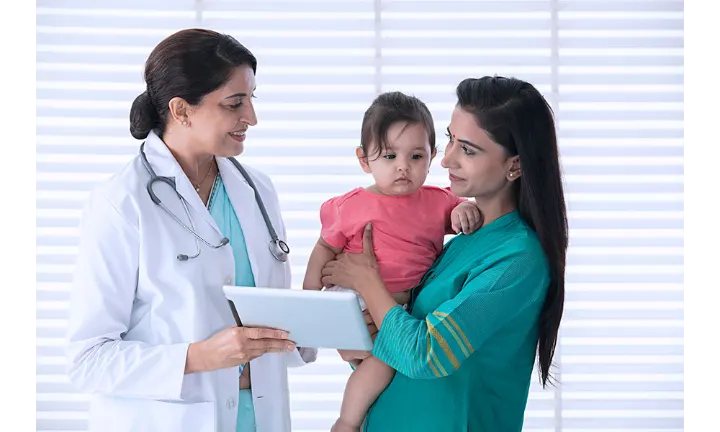Newborn Baby Acne: Causes, Signs, and Treatment
Your gorgeous little angel has finally arrived into the world bearing delicate and soft skin. However, a few weeks after her birth you may notice pimple-like spots on her face. It's likely she has infant acne, which is quite a common condition in newborns. Learn more about what is newborn acne, its causes and how you can treat the rash on baby's face and delicate skin during this period.
What Is Baby Acne and What Causes It?
Once your newborn turns about two to five weeks old, you may notice small pimples on her face. Usually, these pimples on newborn face appear on the baby's cheeks, nose, eyelids, chin, and (or) forehead. This baby acne is also known as neonatal acne and is very common in babies, as about three in ten babies get it. Although experts do not know the exact cause of infant acne, it could be due to one of the following:
An inflammation on your baby's skin caused due to yeast
When your baby's skin comes into contact with hormones in the placenta during your pregnancy, it causes the oil glands in your baby's skin to overstimulate.
It is also important to note that newborn acne has nothing to do with the kind of acne a teenager experiences.
When Does Baby Acne Start and How Long Does It Last?
Baby acne may first appear on your newborn at around 2 to 5 weeks old. So, when does baby acne go away? It's a temporary condition that typically clears up after about three to four months and leaves no scars.
What Does Baby Acne Look Like?
Baby acne looks like tiny red or white bumps or pustules that appear on your infant's cheeks, nose, eyelids, chin, and/or forehead. Sometimes the acne can also extend up on her scalp or down on her neck or upper trunk. Unlike acne that teens and adults can experience, baby acne does not lead to blackheads or whiteheads.
How Do You Clear Up Baby Acne?
There is no specific neonatal acne treatment or at-home remedies that can help clear up your baby's acne. The baby acne goes away on its own, so you will just have to wait for it to clear up, which usually happens after about three to four months. Worry not; it leaves no scars. Until then, you can care for your baby's delicate skin by:
Keeping a clean, soft receiving blanket under your baby’s head while she's awake. This will help shield her skin from any residue of laundry detergent on sheets or clothing.
Washing her face gently every day with warm water and a mild baby soap and patting it dry.
Not pinching or scrubbing the pimples, as this may cause an infection or more harm.
Not moisturising your baby's face with lotions or oils.
How Is Baby Acne Diagnosed?
Your baby’s healthcare provider will be able to determine if it's baby acne or some other form of baby rash such as heat rash or eczema after examining your little one.
The healthcare provider may prescribe a medicated ointment or some other treatment for the baby acne. But be sure not to use any over-the-counter creams or medications without consulting the healthcare provider first, as these can damage your baby's delicate skin.
When Should You See A Doctor?
If anything about your baby's complexion seems out of the ordinary, or if you're concerned that the condition isn't getting better after three to four months, consult your baby's doctor. The doctor may recommend a medicated cream or some other treatment. But be sure not to use any over-the-counter creams or medications without consulting your doctor first, as these can damage your baby's delicate skin. In addition, contact the doctor if you ever notice any of the following with your baby:
Skin blisters
Peeling skin
Fever
Irritability
Poor feeding.
The Bottom Line
Your newborn is adorable and a little baby acne will not diminish his cuteness. Similar to teenage acne, baby acne is merely a part of your baby's growth. Care for your little one's skin as best as you can, wait for it to clear up, and don't forget to place plenty of pecks on those little cheeks


